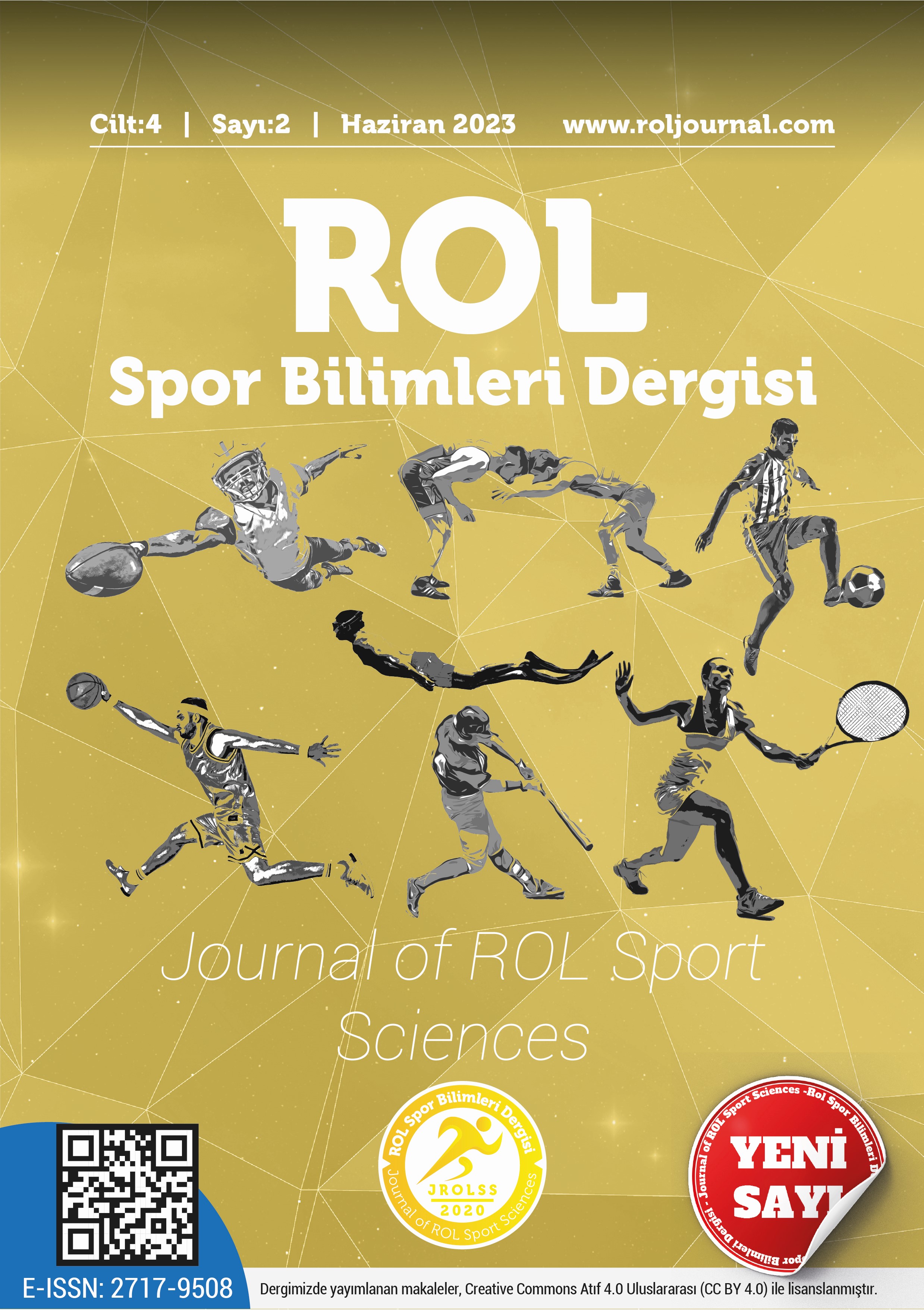Investigation of the vocational experience periods of the UEFA champions league winner team head coaches
DOI:
https://doi.org/10.5281/zenodo.8054513Keywords:
Football, Champions League, Coaching, ExperienceAbstract
The aim of this research is to investigate how long it takes to turn success into a competency for the elite football coaches who won the UEFA Champions League Finals, taking into account the importance of their professional experience. The model of the research was determined as “Basic Qualitative Research”, and the data collection technique in the research was determined as “Document Analysis”. The analysis of the data in the research was made according to the Miles and Huberman model as a descriptive analysis. The universe of the research consists of the teams that won the UEFA Champions League Finals from 1993 to 2022. Its sample is the coaches of the teams that won the UEFA Champions League between 1993-2022. The sampling method of the research is density sampling based on heuristic approach. When the general and active working times of all the coaches who won the UEFA Champions League final from 1993 to 2022 are examined, it is seen that although the average of the coaching experience of the group is high, the champions in the first years of their coaching career are numerically superior to the experienced coaches. As a result, it has been understood that the length of the coaching experience is not a factor that directly affects the success.
References
Barros, C., Assaf, A., & Sá-Earp, F. (2010). Brazilian football league technical efficiency: A Simar and Wilson approach. Journal of Sports Economics, 11(6), 641-651.
Brack, R. (2002). Wissenschafts- und objekttheoretische grundlagen am beispiel handball, Lida Publish.
Bronfenbrenner, U. (1999). Environments in developmental perspective: Theoretical and operational models Measuring environment across the life span: Emerging methods and concepts, American Psychological Association.
Charmaz, K. (2006). Constructing grounded theory: A practical guide through qualitative, Sage.
Denzin, N. K., & Lincoln, Y. S. (2008). The discipline and practice of qualitative research. Introduction Publisher.
Dimec, T., & Kajtna, T. (2009). Psychological characteristics of younger and older coaches. Kinesiology, 41, 172-180.
Flick, U. (2013). The Sage handbook of qualitative data analysis, Sage.
Geeraerts, K., Vanhoof, J., & Van Den Bossche, P. (2021). Flemish teachers’ age-related stereotypes: Investigating generational differences. Journal of Intergenerational Relationships, 19(2), 179-195.
Gilbert, W., & Trudel, P. (2001). Learning to coach through experience: Reflection in model youth sport coaches. Journal of Teaching in Physical Education, (21), 16-34.
Glaser, B. G., & Strauss, A. L. (2006). The discovery of grounded theory: Strategies for qualitative research, Aldine Transaction.
Ilgar, M.Z., & Ilgar, S. C. (2013). Nitel bir araştırma deseni olarak gömülü teori. Sosyal Bilimler Dergisi, 2(3), 197-247.
Instat Website (2023, January 25). Football instatscout. https://www.instatscout.com/.
Jones, R. L., Armour, K. M., & Potrac, P. (2004). Sports coaching cultures: From practice to theory, Psychology Press.
Malinovsky, A., & Petrovska, T. Special skills in the structure of the image of a football coach when working with teams of different levels. Physical Culture and Sports, (27), 205-209.
Mallett, C. J., Trudel, P., Lyle, J., & Rynne, S. B. (2009). Formal informal coach education. International Journal of Sports Science & Coaching, 4(3),325-364.
Manley, A., Greenlees, I., Thelwell, R., & Smith, M. (2010). Athletes' use of reputation and gender information when forming initial expectancies of coaches. International Journal of Sports Science & Coaching, 5(4), 517-532.
Mays, N., & Pope, C. (2000). Assessing quality in qualitative research. BMJ, 320 (7226), 50-52.
Mielke, D. (2007). Coaching experience, playing experience and coaching tenure. International Journal of Sports Science & Coaching, 2(2), 105-108.
Morgan, D. L., & Morgan, R. K. (2008). Single-Case research methods for the behavioral and health sciences, Sage Publications.
Morgan, K., Jones R. L., Gilbourne, D., & Lıeweııyn, D. (2013). Changing the face of coach education: using ethno-drama to depict lived realities. Physical Education and Sport Pedagogy, 18(5), 520-33.
Patton, M. Q. (2014). Qualitative research & evaluation methods: Integrating theory and practice, Sage Publications.
Rangeon, S., Gilbert, W., & Bruner, M. (2011). Mapping the world of coaching science: A citation network analysis. Manuscript Submitted for Publication.
Salmela, J. H. (1995). Learning from the development of expert coaches. Coaching and Sport Science Journal, 2(2), 3-13.
Saury, J., & Durand, M. (1998). Practical knowledge in expert coaches: On-site study of coaching in sailing. Research Quarterly for Exercise and Sport, 69(3), 254-266.
Strauss, A. L., & Corbin, J. (2015). Basics of qualitative research: Techniques and procedures for developing grounded theory, Sage Publications.
Streubert, H. J., & Carpenter, D. R. (2011). Qualitative research in nursing, Lippincott Williams
Tanyaş, B. (2014). Nitel araştırma yöntemlerine giriş: Genel ilkeler ve psikolojideki uygulamaları. Eleştirel Psikoloji Bülteni, 5(1), 25-38.
Transfermrkt Website (2023, January 20). Champions league general information. https://www.transfermarkt.com.tr/uefa-champions-league/meistertrainer/pokalwettbewerb/CL.
UEFA Official Website (2023, January 15) UEFA club rankings. https://www.uefa.com.
West, W. (2001). Beyond grounded theory: The use of a heuristic approach to qualitative research. Counselling And Psychotherapy Research, 1(2), 126-131.
Yıldırım, A., & Şimşek, H. (2013). Sosyal bilimlerde nitel araştırma yöntemleri, Seçkin Yayınları.
Downloads
Published
How to Cite
Issue
Section
License
Copyright (c) 2023 Journal of ROL Sport Sciences

This work is licensed under a Creative Commons Attribution 4.0 International License.



